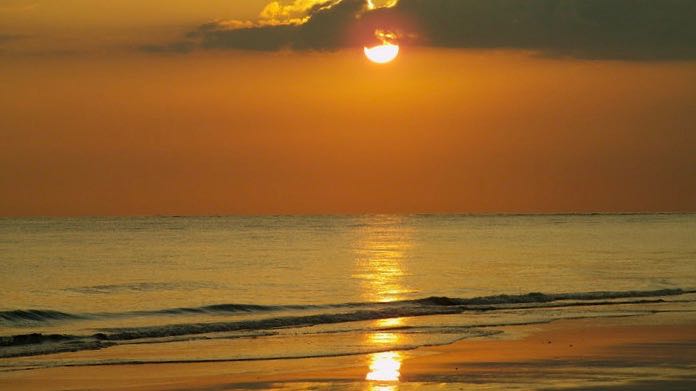MIAMI—The University of Miami (UM) co-designed program Coast Predict - Observing and Predicting the Global Coastal Ocean was selected by the United Nations to advance the objectives of the UN Decade of Ocean Sciences for Sustainable Development. The initiative is included in the first set of UN Ocean Decade Actions that will contribute to fulfilling the ten Ocean Decade Challenges to help deliver the ocean we want by 2030.
UM Rosenstiel School of Marine and Atmospheric Science Professor Villy Kourafalou is a co-chair of the CoastPredict Program and UM Rosenstiel School Professor Claire Paris is a member of its international steering committee. Kourafalou co-chairs are Nadia Pinardi from the University of Bologna in Italy, Joaquín Tintoré from the Balearic Islands Coastal Observing and Forecasting System and the Spanish National Research Council.
CoastPredict, part of the endorsed UN Actions, will design and implement a system made up of different observation and forecasting platforms, continuously and sustainably monitoring rivers, estuaries, coastal cities and the coastal ocean, offering open and free access to coastal information.
“This Program has several transformative aspects, aligning with the Decade where we are asked to be visionary and inclusive,” said Kourafalou, a professor in the UM Rosenstiel School Department of Ocean Sciences. “The overarching transformative aspect is the concept of a global coastal ocean that extends both offshore and inland. It covers from the nearshore to the continental shelf and the part of the deep ocean that interacts with the shelf. And it also extends inland through the deltas, estuaries and river catchment areas, including what we now call the ‘urban ocean’ defined by coastal cities with their harbors and canals.”
CoastPredict was selected for its focus on solutions and ability to accelerate the generation and uptake of ocean knowledge for sustainable development; for its use of innovative technology, transdisciplinary efforts to co-design solutions between scientists and users of ocean knowledge, and for their respect of inclusivity, empowering women, Early Career Ocean Professionals (ECOPs) and indigenous knowledge holders.
“CoastPredict is an excellent framework for bringing together expertise from the Rosenstiel School and across UM on trans-disciplinary ocean observing and prediction with colleagues who can help achieve solutions across the entire value chain of the blue economy” said Roni Avissar, Dean of the UM Rosenstiel School.
CoastPredict is also supported by more than 250 scientists and managers from academic and scientific institutions, and the public and private sectors from 36 countries. Designed together with the Global Ocean Observing System (GOOS), CoastPredict also involves some of the most important international organizations in the field of ocean and climate, such as the World Meteorological Organization (WMO), the International Oceanographic Data and Information Exchange (IODE/UNESCO), the Ocean Best Practices System (OBPS), the Committee on Earth Observation Satellites Coastal Observations Applications, Services and Tools (CEOS COAST), and Geo-Blueplanet, among others. In particular, this initiative is one of the three endorsed GOOS programmes that will actively drive the Ocean Decade, addressing a common challenge with many partners and supporters: Ocean Observing Co-Design, CoastPredict, and Observing Together.

